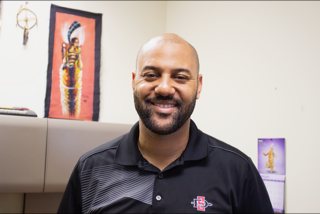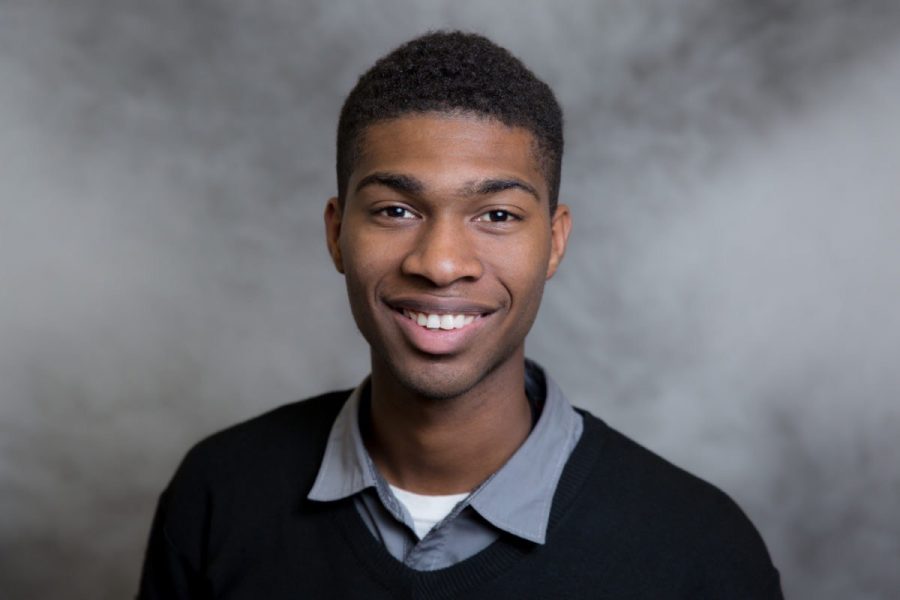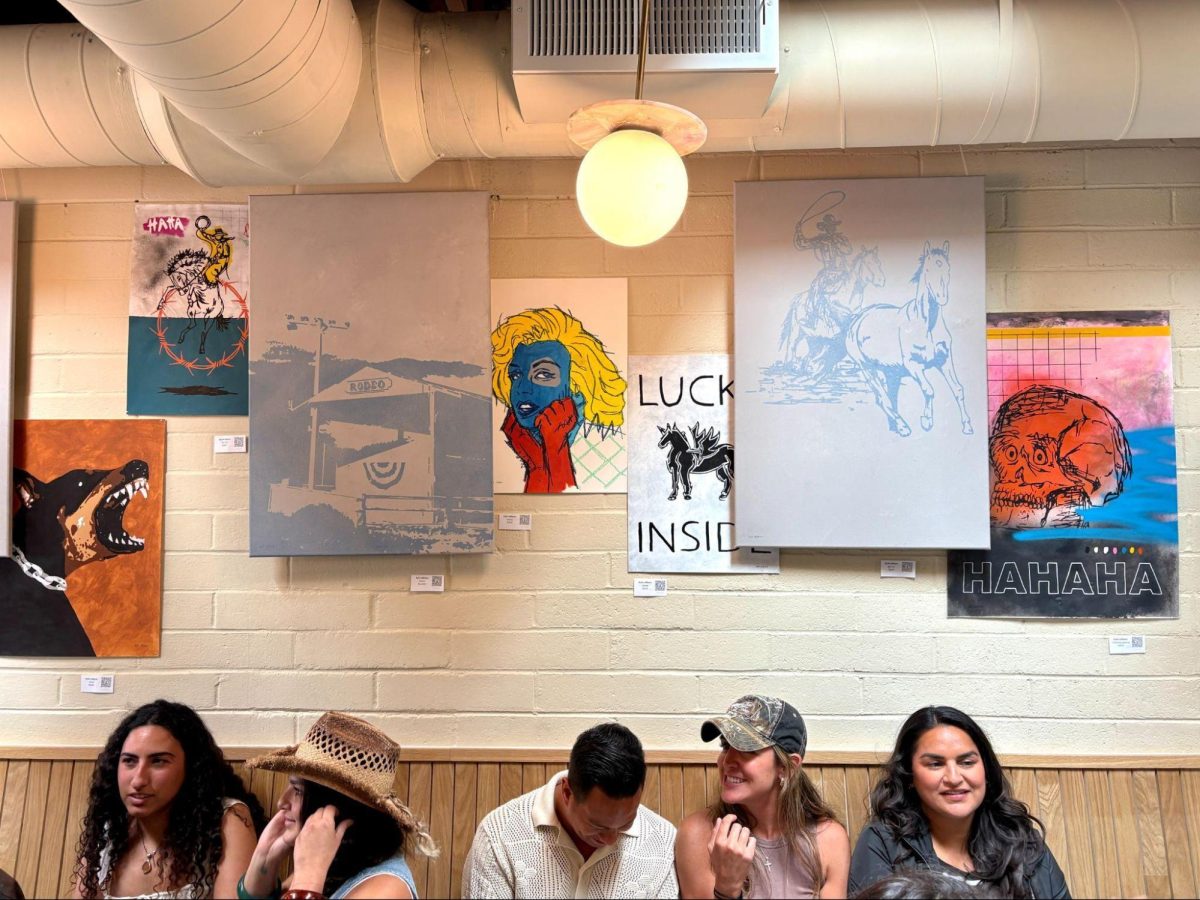Black History Month celebrates and recognizes the achievements of African Americans and the black leaders that shaped history.
San Diego State has hundreds of leaders throughout campus that fit this bill.
Many professors, students and faculty members go above and beyond their coursework. For many of these people, being a leader and a motivator for their community is their top priority.

Ajani Brown, a professor in the Africana Studies Department, wants his students days on campus to be better than his own experience. He said students are his number one motivation.
“I want to be a point of reference, specifically a point of reference for the black community, but in general for the campus community as well,” Brown said. “As far as leadership, it comes with knowing what needs to be improved and being the person that is big enough to speak up about it and finding those resources that make the campus better and more inclusive for all students.”
Being part of the black community on campus, Brown said the representation can always get better because it is not numerically representative.
“If you look at the percentages of professors, you have 66%white professors compared with 3.8%black professors,” Brown said. “It is not statistical equality. So until you get statistical equality, you won’t have equality at all.”
Therefore, he hopes to be a source of information to all the students on campus and specifically those in the black community.
Shane James, a peer educator for the Pride Center, also known as Amber St. James, has created an impact on campus by bringing the voices of queer black students forward. James says a lot of times they are left out of conversations about race, social justice and intersectionality.
Being part of not only the black community but also the LGBTQ+ community has motivated James to help students on campus find a safe spot and have their voices heard.
James sees Black History Month as a time to celebrate community.
“Yes, we are black 365 days a year, but for a month we put on extra. We make sure we are celebrating and shedding light on our people and our history,” James said. “ It was less of ‘Oh, we only get one month.’ It was, ‘This month we are gonna go hard, because we are already doing amazing for the other 365 days.’”
Khalil Adisa, who spends a lot of his time at the Black Resource Center, also provides students a safe spot to express themselves freely like he felt when he first came into the center. To him, being able to do that with other students is a push toward strengthening the black community on campus.
“When the students come to events, when you see them smile, when you see them actually involved soaking in information, talking about things they never told other people because they feel so safe in our group, it gives you a sense of pride,” Adisa said. ”Like wow, I’m really helping somebody else out.”
Adisa said that many African American students on campus can doubt themselves when they don’t see they don’t see others in the black community in leadership positions. His goal is to change that narrative and let students know they can be in those leadership roles and will receive support every step of the way.
“We made strides through everything,” he said. “We dealt with tragedy, we persevered through pain and just with what we have done with what has been against us is so much more than one month.”
These students are also a motivation for Christain Onwuka, president of Associated Students, who says it motivates him when students tell him they resonate with his efforts. These kinds of comments show him his work matters.
Being in several leadership positions has given Onwuka many rewards, but he said that he is still seen as a black man in people’s eyes. He has been in rooms where he gets “weird” stares, but as soon as he is identified as the A.S. president, Onwuka says peoples moods change. He finds this the most frustrating part of being a leader in the black community.
“Having to get the side/sigh eyes from people ‘like why is he here, what did he do to get here’ and they find out who I am and their attitude changes it’s exhausting,” Onwuka said.
Owuka said there should be an emphasis on black leaders everyday, not just during the month of February.
“Being a black leader on campus comes with so many rewards” he said. “There’s so much fatigue because I don’t just represent myself, I represent every black person on this campus.”
It’s a responsibility that Owunka says he does not take lightly even if it’s tiring.
“There are days where I need to recharge and there’s days where I just need to get away from people, but I also know I have a responsibility to make sure I represent all black people to the best that I can.”







